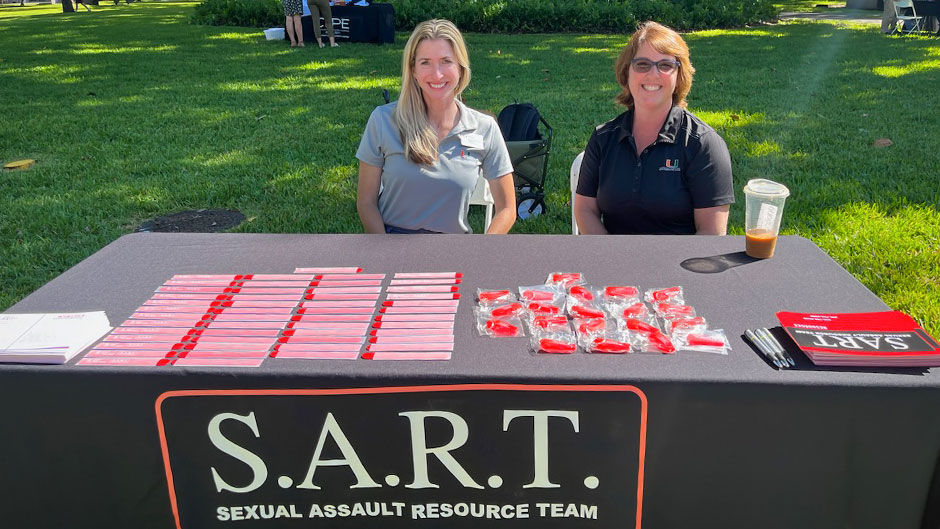The Sexual Assault Resource Team (SART) at the University of Miami is putting out a call for new volunteers to assist survivors of sexual assault. Managed by Audrey Cleary, this valuable, unique telephone resource line and educational tool is providing training for employees and graduate students who are interested in becoming volunteers.
“The SART volunteer may be the first person a student talks to about an assault they experienced,” explained Cleary, who is a psychologist in the University’s Counseling Center and the SART coordinator. “Volunteers are in a position to advise the students of what options they have, during what can be a confusing and overwhelming time.”
Volunteers oftentimes have personal ties to the work they provide through SART, and others said they want to ensure the University is able to provide a round-the-clock resource where survivors have confidentiality, can feel safe, and know their options.
“As a violence researcher and a survivor, I know how critical it is to have someone who both believes you immediately and has the training to get you connected to services as soon as possible,” said Nicholas Metheny, assistant professor and early-career nurse-scientist in the School of Nursing and Health Studies.
Administered by the Counseling Center, SART volunteers are trained to advise callers on resources for a variety of sexual assault situations. These can include incidents where forensic evidence can still be collected, recent circumstances, and those that occurred in the past.
“It can take time to recognize an incident as a sexual assault, and it can take years for survivors to be ready to come forward to report and/or seek treatment,” said Cleary.
Students who call SART can speak anonymously and reveal as much or as little as they choose. There is no information that the volunteer is required to get—they will provide resources based on what the caller tells them or the information that is sought.
“SART is an incredible resource for our students that is trauma-informed and evidence-based,” said Metheny. “We hate that people ever have to use it but are proud to be there for them 24/7, when they need it most.”
SART is also involved in prevention and outreach on campus and will provide information to departments or groups that are interested. The program relies heavily on volunteers to operate. If you wish to become a volunteer, contact Cleary at (305) 284-5511 or a.cleary@miami.edu. Training for new volunteers is mandatory and will take place on Friday, Feb. 3.
“I am always impressed by the volunteer team,” said Cleary. “They are employees and graduate students who go above and beyond their obligations to the University of Miami to help students through a difficult time. They have the ability to make a positive impact during a traumatic time period. The program is able to continue because members of the UM community are willing to give.”
For emergency services, visit the University of Miami Counseling Center.

